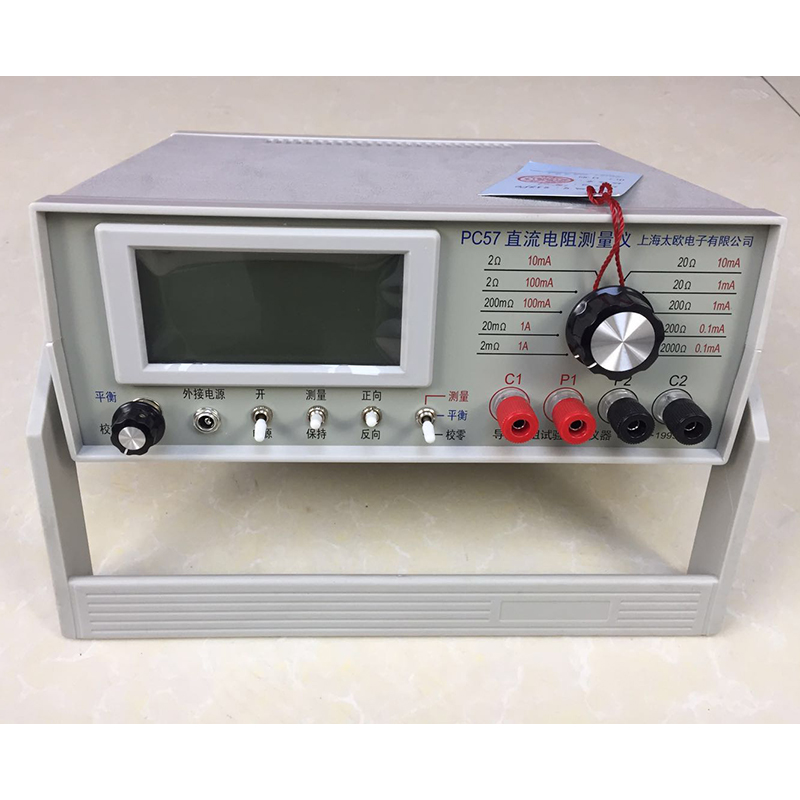resistance measurement equipment manufacturer
Understanding Resistance Measurement Equipment A Guide for Manufacturers
In the world of electrical engineering and electronic manufacturing, the measurement of resistance is crucial. Resistance measurement equipment plays a vital role in ensuring that products meet quality standards and function correctly. The demand for precise and reliable resistance measurement continues to grow as more industries adopt advanced technologies. This article explores essential aspects of resistance measurement equipment and highlights leading manufacturers in this specialized field.
What is Resistance Measurement Equipment?
Resistance measurement equipment encompasses a variety of devices designed to determine the electrical resistance of components and circuits. These devices can range from simple multimeters to sophisticated ohmmeters and resistance bridges. Measurements taken with these tools can provide valuable insights into the quality and performance of electrical components. By measuring resistance, manufacturers can assess parameters such as insulation quality and the functionality of electronic circuits, ensuring that their products operate efficiently and safely.
Types of Resistance Measurement Equipment
1. Multimeters One of the most commonly used tools in electrical testing, multimeters can measure voltage, current, and resistance. Digital multimeters (DMMs) are highly regarded for their precision and readability, making them suitable for both novice and experienced technicians.
2. Ohmmeters Specifically designed to measure resistance, ohmmeters can offer greater accuracy than standard multimeters. They typically include features like automatic ranging, which adjusts the measurement scale according to the resistance level being tested.
3. Resistance Bridges These sophisticated devices provide highly accurate resistance measurements. They utilize a comparison method to determine unknown resistance values against known standards, making them essential in laboratory settings and for high-precision applications.
4. Temperature Coefficient of Resistance (TCR) Testers These specialized instruments measure how the resistance of a material changes with temperature. Such measurements are crucial for manufacturers creating components for environments with varying thermal conditions.
5. Low Resistance Ohmmeters Used for measuring very low resistance values, these devices are essential in applications such as testing electrical connections and contacts. They often come equipped with advanced features to mitigate errors due to test lead resistance.
The Importance of Quality Manufacturing
resistance measurement equipment manufacturer

Manufacturers of resistance measurement equipment face the challenge of producing highly precise instruments that operate under various conditions. Quality assurance and rigorous testing are paramount in this process. Reliable manufacturers adhere to international standards such as ISO 9001, ensuring their products meet stringent quality criteria.
Innovative technology is also a significant factor. With the rise of digital technologies, the incorporation of smart features such as Bluetooth connectivity, data logging, and touchscreen displays has transformed traditional measurement devices. Manufacturers that embrace these advancements find themselves at a competitive advantage.
Leading Manufacturers in Resistance Measurement
Several companies stand out in the realm of resistance measurement equipment. Each offers unique features and capabilities that cater to specific industry needs
1. Keysight Technologies Known for their high-end testing solutions, Keysight provides a range of precision measurement equipment, including advanced ohmmeters and multimeters.
2. Fluke Corporation Fluke is a well-respected name in the testing and measurement industry, offering reliable and durable multimeters and specialized resistance measurement tools.
3. Tektronix Specializing in electronic test and measurement equipment, Tektronix produces cutting-edge resistance measurement devices that integrate modern technology for enhanced results.
4. Chroma ATE This manufacturer focuses on test and measurement solutions for a range of industries, providing precision resistance measurement tools with robust functionality.
Conclusion
Resistance measurement equipment is an integral part of electrical engineering, serving as a cornerstone for quality assurance in manufacturing. As industries continue to evolve, the role of precise measurement tools becomes increasingly important. By understanding the types of resistance measurement equipment and recognizing leading manufacturers, professionals can make informed choices that enhance their operations and product quality. The commitment to accuracy, reliability, and innovation will continue to shape the future of resistance measurement in manufacturing, ensuring that every component performs as intended.
-
Why the Conductor Resistance Constant Temperature Measurement Machine Redefines Precision
NewsJun.20,2025
-
Reliable Testing Starts Here: Why the High Insulation Resistance Measuring Instrument Is a Must-Have
NewsJun.20,2025
-
Flexible Cable Flexing Test Equipment: The Precision Standard for Cable Durability and Performance Testing
NewsJun.20,2025
-
Digital Measurement Projector: Precision Visualization for Modern Manufacturing
NewsJun.20,2025
-
Computer Control Electronic Tensile Tester: Precision and Power for the Modern Metal Industry
NewsJun.20,2025
-
Cable Spark Tester: Your Ultimate Insulation Assurance for Wire and Cable Testing
NewsJun.20,2025
 Copyright © 2025 Hebei Fangyuan Instrument & Equipment Co.,Ltd. All Rights Reserved. Sitemap | Privacy Policy
Copyright © 2025 Hebei Fangyuan Instrument & Equipment Co.,Ltd. All Rights Reserved. Sitemap | Privacy Policy
